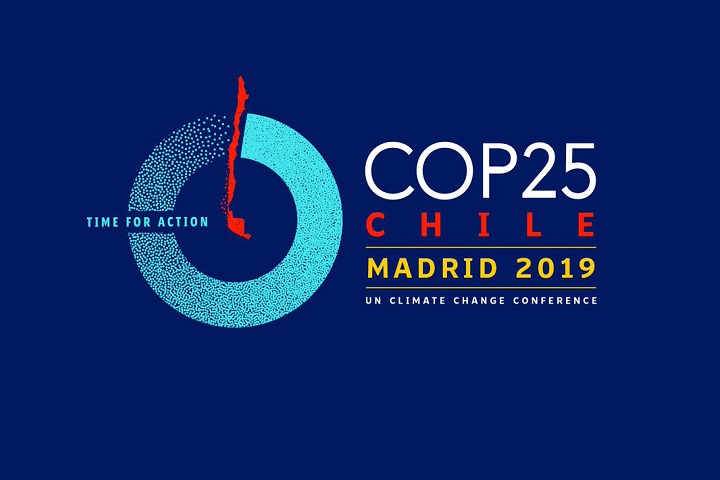
For many decades the human species has been at war with the planet. And the planet is fighting back. The World Meteorological Organization is releasing its State of the Climate report at this conference. And its findings are clear.
The last five years have been the hottest ever recorded. Sea levels are the highest in human history. Ice caps are melting at unprecedented speed and the oceans are becoming more acidic with all its consequences. Biodiversity on land and sea is under severe attack.
Climate-related natural disasters are becoming more frequent, more deadly, more destructive, with growing human and financial costs. Drought in some parts of the world is progressing at alarming rates destroying human habitats and endangering food security.
Every year, air pollution, associated to climate change, kills seven million people. Climate change has become a dramatic threat to human health and to human security. In short, climate change is no longer a long-term problem. We are confronted now with a global climate crisis.
The point of no-return is no longer over the horizon.
It is in sight and hurtling towards us. However, my message here today is one of hope not of despair. Our war against nature must stop. And we know that that is possible. The scientific community has provided us with the roadmap to achieve this. According to the Intergovernmental Panel on Climate Change, we must limit global temperature rise to 1.5 degrees Celsius, reach carbon neutrality by 2050 and reduce greenhouse gas emissions by 45 per cent from 2010 levels by 2030.
But let’s be clear. Until now, our efforts to reach these targets have been utterly inadequate. The commitments made in Paris would still lead to an increase in temperature above three degrees Celsius. But many countries are not even meeting those commitments. Emissions of greenhouse gases are still growing at an alarming rate.
Today, the world is set to produce 120 per cent more fossil fuels than what is consistent with a 1.5-degree pathway. And, for coal, the figure is 280 per cent. But the scientific community is also telling us that the roadmap to stay below 1.5 degrees is still within reach. The technologies that are necessary to make this possible are already available.
The signals of hope are multiplying. Public opinion is waking up everywhere. Young people are showing remarkable leadership and mobilization. More and more cities, financial institutions and businesses are committing to the 1.5 -degree pathway. That was recently clearly proved during the Climate Action Summit in New York.
What is still lacking is political will. Political will to put a price on carbon. Political will to stop subsidies on fossil fuels. Political will to stop building coal power plants from 2020 onwards. Political will to shift taxation from income to carbon – taxing pollution instead of people.
We simply have to stop digging and drilling and take advantage of the vast possibilities offered by renewable energy and nature-based solutions. That is why in September I convened the Climate Action Summit. The Summit provided a global stage to see who is stepping up.
Seventy countries committed to carbon neutrality by 2050. This includes seven G20 countries as well as many nations who have contributed least to the problem. But we also see clearly that the world’s largest emitters are not pulling their weight. And without them our goal is unreachable.
That is why it is so important that we gather in Madrid for this COP25. I expect from the COP a clear demonstration of increased ambition and commitment showing accountability, responsibility and leadership. In the crucial 12 months ahead, it is essential that we secure more ambitious national commitments – particularly from the main emitters – to immediately start reducing greenhouse gas emissions at a pace consistent to reaching carbon neutrality by 2050.
We should ensure that at least $100 billion dollars, US dollars a year, is available to developing countries for mitigation and adaptation and take into account their legitimate expectations to have the resources necessary to build resilience and for disaster response and recovery.
We must also make progress on the social dimensions of climate change and ensure that national commitments include a just transition for people whose jobs and livelihoods are affected as we move from the grey to the green economy.
These are the reasons why I’m pleased to announce that Mr. Mark Carney, who is presently the Governor of the Bank of England and a remarkable pioneer in pushing the financial sector to act on climate, has accepted to be my Special Envoy on Climate Action and Climate Finance […].
I also strongly hope that COP25 will be able to agree on the guidelines for the implementation of article 6 of the Paris Agreement. That was unfortunately not achieved in Katowice as we approved the rulebook for the implementation of the Paris Agreement. This agreement will establish a solid basis for international cooperation to reduce emissions and allow for a greater role of the private sector in climate action.
These are among the messages I am bringing to the conference. We are in a deep hole, and we are still digging. Soon it will be too deep to escape. I welcome the voices of the young activists I have been meeting. They understand that we are jeopardizing their future. That is why I will continue to push every day to keep climate at the top of the international agenda.
António Guterres is Secretary-General of the United Nations.





